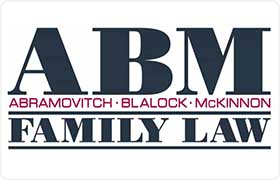Northbrook Divorce & Family Law Lawyers, Illinois
Sponsored Law Firm
-
 x
x

Click For More Info:
-
Abramovitch Blalock McKinnon, LLC
120 North LaSalle Street Suite 1030 Chicago, IL 60602» view mapDivorce & Family Law Guiding You Through The Toughest Times
When dealing with complex legal matters that involve your family, it’s crucial to seek counsel from a dedicated, dependable Chicago divorce lawyer.
800-609-2870
Sponsored Lawyers
1-10 of 52 matches
Estate, Real Estate, Business Organization, Wills & Probate, Guardianships & Conservatorships
Matthew Livingston is a member of the Illinois Bar Association, the Chicago Bar Association, and the Illinois Real Estate Lawyers Association. Knowledgeable in many areas of law, Attorney Livingston concentrates his practice on estate planning, real estate, and business formation matters. Located in Glenview, IL, Matthew is passionate about providing legal help to the members of his community. To schedule a free initial consultation, contact our Glenview probate attorney online or by calling 847-544-6657.
(more)Divorce & Family Law, Real Estate
James Nicodemus proudly serves Glenview, IL and the neighboring communities in the areas of divorce & family law, as well as real estate law.
(more)Divorce & Family Law, Child Custody, Child Support, Guardianships & Conservatorships, Alimony & Spousal Support
Eric, the founder of Sucharski Law Firm LLC, has dedicated his career exclusively to family law. With extensive experience in trial litigation and a track record of successfully negotiating settlements for complex divorce, child custody, and child support cases, Eric employs a strategic and measured approach that combines legal expertise with a deep understanding of his clients' needs. To schedule your free consultation with the Northbrook, IL Divorce Attorney, please visit online or call 224-276-6600.
(more)Divorce & Family Law
For more than four decades, Arnold Goldstein has provided results-focused advocacy for a broad range of family law issues. During his tenure, Mr. Goldstein has established a reputation for aggressively advancing his clients’ interests during negotiations and in the courtroom.
(more)Divorce & Family Law
Leo Sokolov graduated from DePaul University in Chicago with a Bachelor of Arts degree in political science in 2012, and in 2015 he graduated from The John Marshall Law School now known as University of Illinois Chicago Law School with a J.D. in 2015. He received his LLM degree at John Marshall Law School concentrating in Tax in 2018. While in the Juris Doctor program at John Marshall, he also worked as a teaching assistant to Professor Julie M. Spanbauer and earned a CALI award in Constitutional Law. Prior to passing the bar, Leo gained nearly two years of experience working as a clerk for the Law Office of Michael P. Doman from January, 2014 through November, 2015. He then transitioned to an attorney with the firm and was sworn in as an Illinois Attorney in November, 2015. Leo is a member of the Chicago Bar Association and Illinois State Bar Association. He is fluent in Russian.
(more)Family Law, Divorce, Adoption, Divorce & Family Law
Family law attorney David Silberman is the founding attorney of Silberman Law Group in Northbrook, Illinois. Mr. Silberman has a long track record of success handling all types of family law matters. He provides clients with honest, reliable legal advice, protecting their best interests and helping to ensure successful, sustainable outcomes. With over 15 years of experience exclusively handling family legal matters, David is known among his clients and peers for his ability to negotiate favorable results outside the courtroom. In cases that don’t reach a settlement, David undertakes meticulous legal analysis to craft strategies to secure favorable outcomes in court. David views litigation as a form of science. He delivers top-tier legal counsel by delving into the intricacies of each case, paying attention to details, and staying updated on evolving laws. David collaborates closely with each client to safeguard their legal rights amid uncertain and trying circumstances. While divorce ranks among life’s most stressful experiences, David effortlessly connects with clients, fostering constructive dialogue with involved parties and legal representatives for the resolution of intricate parenting and financial matters. David’s measured, resolute advocacy and thorough preparation have earned him the admiration of legal professionals and judges throughout the Chicagoland area. While many attorneys claim to be “aggressive,” David distinguishes himself as a highly focused advocate who provides invaluable guidance and legal advice during emotionally taxing periods.
(more)


 Tina Abramovitch Chicago, IL
Tina Abramovitch Chicago, IL






